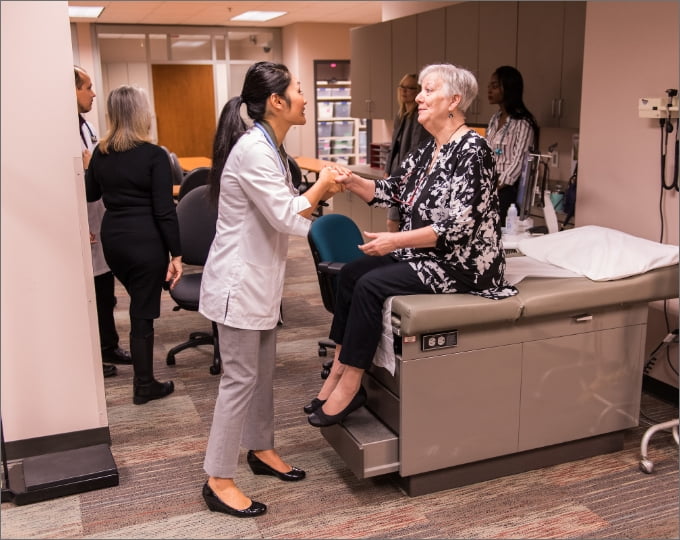
How to Become a Nurse Practitioner in Florida
September 9, 2020Are you ready to learn how to become a nurse practitioner in Florida?
As of May 2019, the Sunshine State employed 12,310 nurse practitioners. But it needs more. There's a severe shortage of primary care providers that nurse practitioners are qualified to address.
Becoming a Florida nurse practitioner will allow you to make a meaningful difference in people's lives. You'll also enjoy stable employment and excellent salary potential.
Use this blog to find out how to become a nurse practitioner in Florida and explore the highly ranked online Family Nurse Practitioner program in Florida from Texas Woman's University.
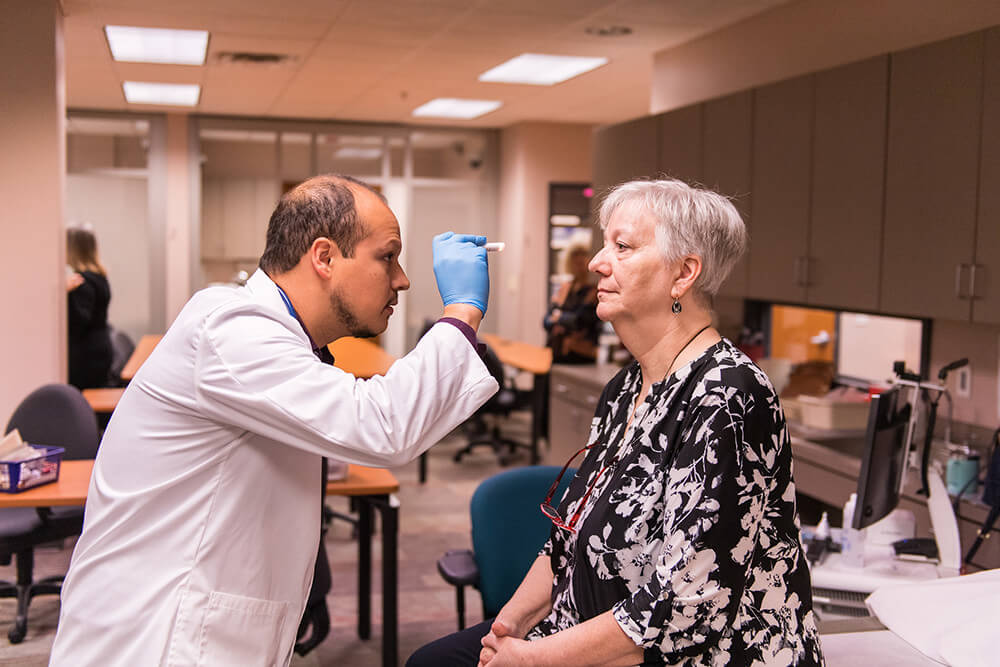
TWU MSN-FNP students in Fall 2019.
Photo by Michael Modecki
Why Work as a Florida Nurse Practitioner?
Before diving into how to become a nurse practitioner in Florida, let's examine why it's a promising career path.
Strong Job Market
The demand for nurse practitioners is soaring.
Between 2018 and 2028, the U.S. Bureau of Labor Statistics (BLS) projects the employment of nurse practitioners will grow by 28%. This figure is almost six times faster than the average for all jobs.
According to state officials, the growth rate in Florida will be even higher.
Data from the Florida Department of Economic Opportunity (FDEO) shows that nurse practitioner is the second-fastest-growing job in the state. FDEO expects employment to rise by almost 31% between 2019 and 2027, resulting in 7,411 job openings.
By becoming a Florida nurse practitioner, you can take advantage of a robust job market over at least the next eight years.
Large Salaries
Nurse practitioners in Florida earn a sizable income.
Here's what they make in the five most populated cities:
- Tampa: $94,057
- Miami: $92,903
- Orlando: $90,278
- Jacksonville: $88,842
- St. Petersburg: $88,529
Across the state, the average annual wage of nurse practitioners is $101,510. In some regions of Florida, you can anticipate earning more.
The following locations pay nurse practitioners six-figure wages, some of which top the national average salary of $110,030.
The highest-paying metropolitan areas of Florida are:
- Palm Bay-Melbourne-Titusville: $127,080
- Homosassa Springs: $119,190
- Sebring: $117,390
- Lakeland-Winter Haven: $113,150
- North Port-Sarasota-Bradenton: $105,960
- Port St. Lucie: $104,230
- Miami-Fort Lauderdale-West Palm Beach: $103,960
- Sebastian-Vero Beach: $103,880
- Deltona-Daytona Beach-Ormond Beach: $102,830
- Pensacola-Ferry Pass-Brent: $101,710
- Learn more about nurse practitioner salary.
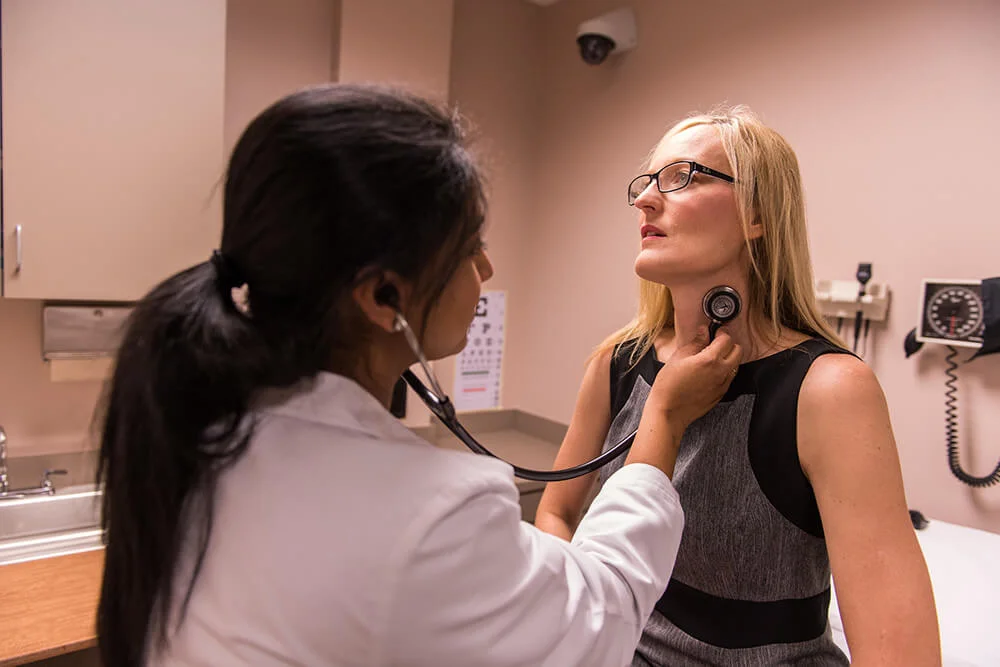
TWU MSN-FNP students in Fall 2019.
Photo by Michael Modecki
Expanding Practice Environment
Another reason to work in Florida is growing the scope of nurse practitioner practice.
Florida is one of 12 states with a restricted practice environment. It's the most limited level of practice and requires nurse practitioners to work under physician oversight.
However, Florida Gov. Ron DeSantis recently signed a bill into law that broadens the role of nurse practitioners.
As of July 1, 2020, any Florida nurse practitioner who specializes in primary care can apply to practice independently. The new law applies to those working in family medicine, general pediatrics and general internal medicine.
To qualify for the optional autonomous practice license, a nurse practitioner must document the following with the Florida Board of Nursing (BON):
- An active, unencumbered nurse practitioner license
- No disciplinary action against the license in the last five years
- At least 3,000 clinical hours supervised by a physician in the past five years
- Completion of six college semester hours over the previous five years, with three in pharmacology and three in differential diagnosis
- Professional liability coverage
Nurse practitioners who successfully obtain independent practice licenses from the BON receive signature authority. They're permitted to sign:
- Orders for the involuntary examination of individuals on the grounds of mental health
- Death certificates
- Orders for admitting and discharging patients
- Other endorsements that need a physician signature (except for medical cannabis)
Are you interested in primary care and independent practice? If so, now is an ideal time to look into how to become a nurse practitioner in Florida.

What Are the Prerequisites for Becoming a Florida Nurse Practitioner?
The path to becoming a Florida nurse practitioner starts with graduate nursing education. Before you can begin, you'll need to meet two prerequisites.
Earn a Bachelor's Degree
As you research how to become a nurse practitioner in Florida, you'll learn it's essential to have a bachelor's degree.
According to the American Association of Colleges of Nursing (AACN), all registered nurses should hold a minimum of a Bachelor of Science in Nursing from an accredited four-year college or university.
Why? Research has linked preparation at the baccalaureate level and higher with:
- Lower mortality rates
- Fewer medication errors
- Positive patient outcomes
As a result, a BSN is an admissions requirement for most nurse practitioner programs. The degree will prepare you to succeed in graduate school as well as in our increasingly patient-centered world of health care.
Become a Registered Nurse
Getting your registered nursing license is another prerequisite for how to become a nurse practitioner in Florida. It's also an admissions requirement for nurse practitioner programs.
In Florida, aspiring nurse practitioners can hold a registered nursing license from any U.S. jurisdiction. In other words, you don’t need to be a Florida RN to become a Florida nurse practitioner.
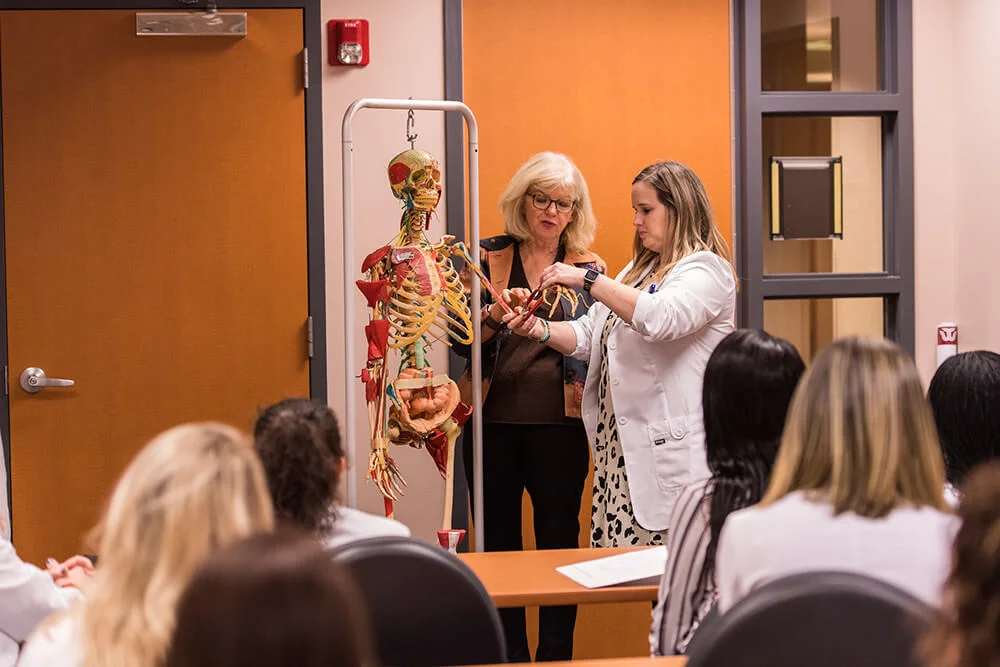
TWU MSN-FNP students in Fall 2019.
Photo by Michael Modecki
What Are the Steps for How to Become a Nurse Practitioner in Florida?
The process for how to become a nurse practitioner in Florida has five steps:
- Choose a nurse practitioner specialty
- Complete a nurse practitioner program
- Obtain nurse practitioner national board certification
- Get certified as a Florida nurse practitioner
- Find employment
The amount of time this process takes to complete depends on the nurse practitioner specialty and program you choose. Once you enroll in a nurse practitioner program, you can start practicing as an NP in approximately two to four years, depending on the length of your program and time to pass the certification exam.
Read on to learn more about each step.
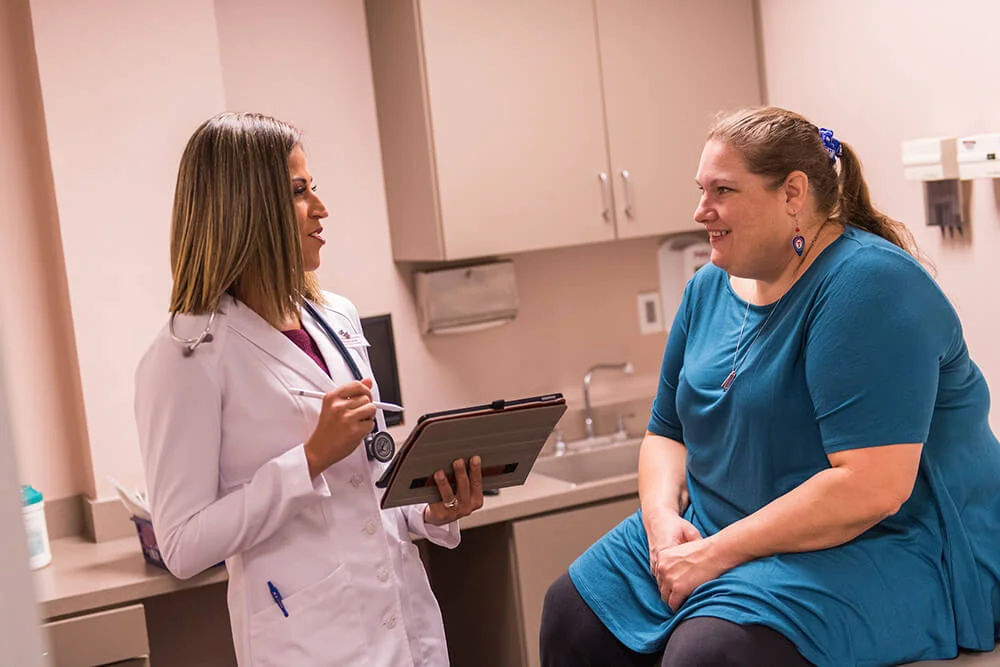
TWU MSN-FNP students in Fall 2019.
Photo by Michael Modecki
Step 1. Choose a Nurse Practitioner Specialty
All nurse practitioners must hold a master's or post-master's degree in a specialty area. Picking an area of specialization is a crucial part of how to become a nurse practitioner in Florida, helping you decide which nurse practitioner program to attend.
What Are the Nurse Practitioner Specialties?
As a Florida nurse practitioner, you can practice in:
- Acute care
- Adult health
- Family health
- Gerontology health
- Neonatal health
- Oncology
- Pediatric/Child health
- Psychiatric/Mental health
- Women's health
Some specializations allow for further study in areas such as dermatology, emergency care or cardiovascular care. For example, the top three clinical focuses for family nurse practitioners are primary care, urgent care and internal medicine.
Regardless of the specialty you choose, a nurse practitioner program like the one at Texas Woman's will prepare you to carry out a range of health care services.
On a typical day, nurse practitioners:
- Order, perform and interpret diagnostic tests
- Diagnose and treat acute and chronic conditions such as diabetes, high blood pressure, infections and injuries
- Prescribe medications and other treatments
- Manage patients' overall care
- Provide patient education and counseling on disease prevention and positive health and lifestyle choices
How Do I Pick a Specialty?
Think about your clinical interests and preferences.
What type of patient would you like to work with? If you enjoy treating patients of all ages, from newborns to the elderly, then family health is a suitable option. Pediatric/child health is ideal if you want to serve kids exclusively.
Where do you want to work? Acute care is a good pick for those who want to work in inpatient care. If you prefer outpatient, then explore family health, women's health or gerontology health.
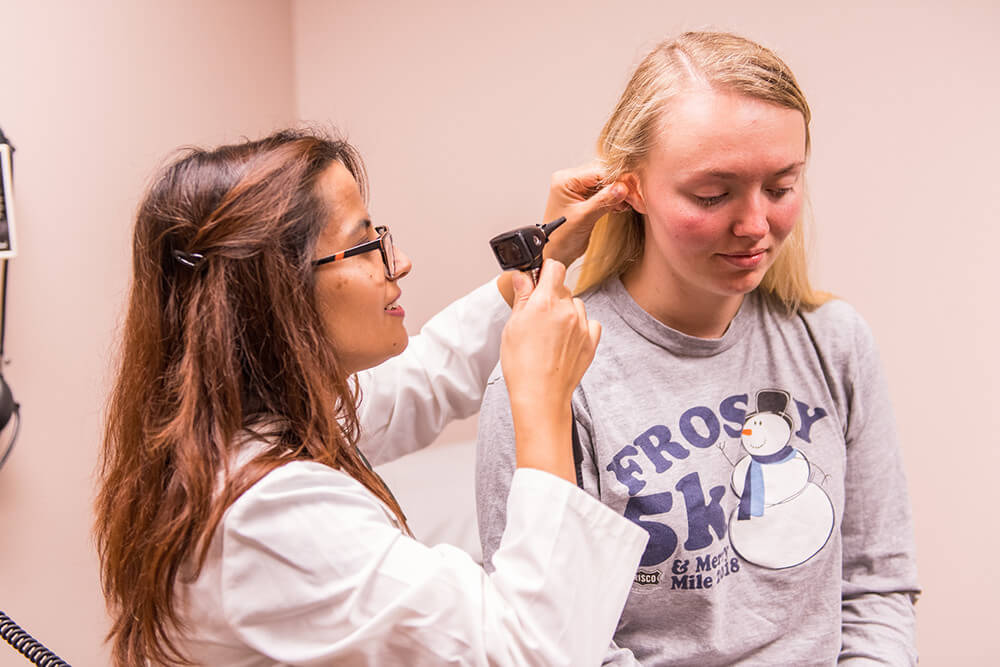
TWU MSN-FNP students in Fall 2019.
Photo by Michael Modecki
Why Become a Florida Nurse Practitioner in Family Health?
Here's why family health is an excellent specialty for aspiring nurse practitioners in Florida.
Autonomous Practice
One benefit of becoming a family nurse practitioner in Florida is that you'll be able to practice independently.
Remember that as of July 1, 2020, only primary care nurse practitioners have the option to practice without physician oversight.
So, if working autonomously is an important career goal, then consider family health.
High Demand
Florida has a critical deficit of primary care physicians. As a result, primary care providers - including family nurse practitioners - are in high demand.
Over the next decade, 48% of primary care doctors are expected to retire.
At the same time, the supply of doctors cannot keep up with the increased need for primary care services. Approximately 3 million Floridians gained insurance coverage under the Patient Protection and Affordable Care Act.
To meet patient needs, the state must recruit an additional 3,000 to 5,000 primary care providers. That's why family nurse practitioners are a crucial part of the solution. As primary care providers, they can offer many of the same services as doctors.
Read more about the benefits of becoming a family nurse practitioner.

Step 2. Complete a Nurse Practitioner Program
Once you've chosen a specialty, the next step in how to become a nurse practitioner in Florida is to complete your nurse practitioner education.
Which Degree Should I Pursue?
As a BSN-prepared nurse, you have two educational options for becoming a Florida nurse practitioner – a doctorate or master's degree. This section will help you decide which is right for you.
Doctorate
Health care leaders have called for the doctorate to replace the master's degree as the terminal degree for all advanced practice registered nurses (APRNs). They believe doctorally prepared nurses are best positioned to make a significant impact on health care outcomes.
If you want to attain the highest level of clinical nursing proficiency, pursue a Doctor of Nursing Practice (DNP). It's a practice-focused doctorate that will develop you as an expert in specialized advanced nursing practice.
Master's Degree
While there's a push for more nurse practitioners to reach the doctorate level, a master's degree will also equip you with the core nurse practitioner competencies.
According to AANP, nurse practitioner master’s programs are equivalent to doctoral programs in other fields, such as medicine and dentistry.
So, earning a master's degree is a great alternative for becoming a nurse practitioner. It'll prepare you for advanced nursing roles in patient care as well as administration.
Most master's programs take 18 to 36 months of full-time study to complete. If you want to earn a doctorate after your master's degree, you can do so in an MSN to DNP program.

Step 3. Obtain Nurse Practitioner National Board Certification
To apply for APRN licensure in Florida, you must be a nationally certified nurse practitioner. You'll be eligible to apply for board certification after graduating from an accredited nurse practitioner program.
Two organizations grant nurse practitioner board certification: AANP and the American Nurses Credentialing Center (ANCC).
Together, they offer several nurse practitioner certificates, including:
- Family Nurse Practitioner
- Adult-Gerontology Primary Care Nurse Practitioner
- Adult-Gerontology Acute Care Nurse Practitioner
- Psychiatric-Mental Health Nurse Practitioner
- Emergency Nurse Practitioner
You'll apply for the certification that aligns with your specialization area. For example, graduates of Texas Woman's online FNP program apply for the family nurse practitioner certification, which both organizations offer.
The certification processes for AANP and ANCC are similar. Here’s an overview:
1. Submit the application and fee. The application will demonstrate whether you meet the eligibility requirements for certification, which include:
- Holding a registered nursing license
- Graduating from an accredited nurse practitioner program
- Completing specific graduate-level course requirements
2. Take the certification exam. The exam content differs by the organization but will test your clinical knowledge of your specialty area.
When your application is approved and you pass the exam, you'll become a nationally certified nurse practitioner.

Step 4. Get Certified as a Florida Nurse Practitioner
With board certification, you'll be ready to apply for APRN licensure in Florida. The Board of Nursing (BON) processes APRN licensure applications in an average of nine to 11 days. So, successful applicants can begin looking for employment quickly.
The eligibility requirements are:
- A valid registered nursing license from any U.S. jurisdiction
- A master's or post-master's nurse practitioner degree
- Proof of national board certification
- Proof of malpractice insurance or exemption
To apply, submit the following materials to the Florida BON:
1. Online application and $110 fee. The form asks for information related to your:
- Personal background
- Licensure history
- Nursing education
- Liability claims
- Criminal history
- Discipline history
2. Electronic fingerprints. You'll need to schedule an appointment to capture electronic fingerprints, which will serve as a background check. You can use any Livescan fingerprinting provider in the country.
3. Proof of national board certification. Have your national certifying board send evidence of your nurse practitioner certification.
4. Evidence of malpractice insurance or exemption. Submit proof of your malpractice insurance or exemption.

Step 5. Search for Florida Nurse Practitioner Jobs
The last step in how to become a nurse practitioner in Florida is to find employment.
Fortunately, you already know that Florida has a high demand for nurse practitioners. In this section, find out exactly where you can apply.
Where Can I Work as a Florida Nurse Practitioner?
You’ll have great flexibility when it comes to your practice environment.
Nurse practitioners can work in clinics, hospitals, emergency rooms, urgent care sites, private practices, nursing homes, schools, colleges and public health departments.
Your specialty area will drive your work setting. For example, the most common practice setting among family nurse practitioners is a hospital outpatient clinic.
Which Areas of Florida Need Nurse Practitioners?
According to BLS, APRNs are in particularly high demand in rural and medically underserved areas nationwide.
Jobs may also be more plentiful in the following metropolitan regions, which employ the highest concentration of nurse practitioners in Florida:
- Homosassa Springs
- Punta Gorda
- Deltona-Daytona Beach-Ormond Beach
- Port St. Lucie
- Ocala
- Sebastian-Vero Beach
- Palm Bay-Melbourne-Titusville
- Tallahassee
- Gainesville
- Sebring
How Can I Find Jobs?
To find Florida nurse practitioner job openings, check out the online job boards provided by nursing organizations. AANP, the Florida Association of Nurse Practitioners and the American Nurses Association all offer employment resources for nurse practitioners.

Become a Florida Nurse Practitioner
Now that you know how to become a nurse practitioner in Florida, are you ready to begin the process?
Authorized in Florida and 31 other states, Texas Woman's online Master of Science in Nursing - Family Nurse Practitioner (MSN-FNP) program will help you become a holistic primary care provider.
It provides the educational foundation to fulfill the significant demand for family nurse practitioners through recognized academic excellence and a transformative student experience.
In less than three years, you'll develop advanced health care knowledge, research skills and clinical capabilities while gaining a multifaceted perspective of wellness.
Accredited by the Commission on Collegiate Nursing Education (CCNE), the online MSN-FNP is well-regarded and highly ranked while still being one of the more affordable options.

